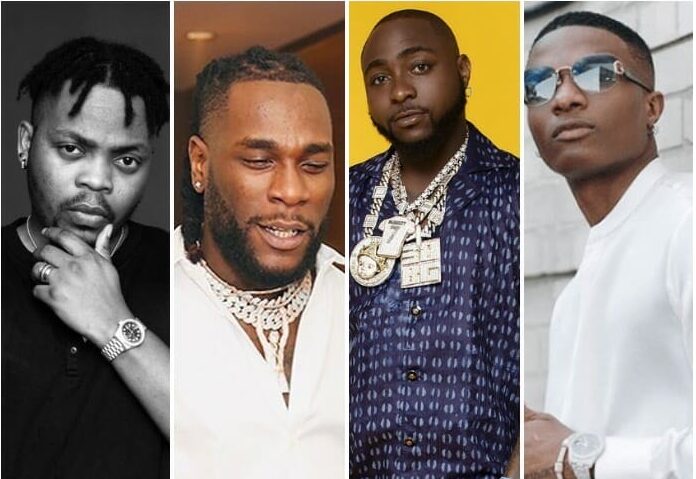Nigerians have unequivocally promoted African culture and values through music, literature, film, art and fashion for decades. In recent times however, the youths have continued in that spirit to promote technological innovation; and cultural globalization through Nigerian music.
Nigeria, with over 200 million people and a large population of youths, has for long been considered a regional political and economic force. And arguably so, in spite of its internal struggles. But the driving force to put Nigeria and the African culture on the world map through music has been huge and impactful. The influence of Nigerian music on the world, particularly on the global pop culture is speaking volumes. Far more than any economic or political influence the country may have attempted to wield on the African continent. Or on the rest of the world for that matter.
We give kudos to the industry and creativity of art, music, film and literary giants who pushed Nigeria into fame across the decades. Many thanks to inspiring giants the likes of Chinua Achebe, Pete Edochie, Chimamanda Adichie, Wole Soyinka, Sunny Ade, Fela Kuti, Ebenezer Obey, Onyeka Onwenu, Ben Enwonwu – the list goes on and on.
Nigerian Music – A Medium for Enforcing Democracy and Socio-Economic Reforms
Our Nigerian musicians (as well as the rest of Africa) have been known to be good storytellers. Nigerian music artists have recounted history, tradition, African values, current social challenges, aspirations, love and more through music.
They have spoken against social ills and poor governance; and demanded for social justice and democracy through music, right from time. Sunny Okosun, Majek Fashek, Mandators, Christy Essien-Igbokwe, Ras Kimono, Orits Williki and many others, all did this during the 80s. But the one artist whose acute political activism went far and wide on a global scale was Fela Anikulapo-Kuti, and his Afrobeat music.
Fela’s sons, Femi and Seun Kuti, followed in their father’s footsteps to keep the flame burning. They continued to use Afrobeats as the voice of conscience to speak to the masses and the government, after their father died. That legacy of music as satire and political activism is being promoted by Grammy award winner Burna Boy. Burna Boy further used Afropop – a reinvented brand of Afrobeat (fused with R&B, reggae, dancehall, pop and other Western genres) as his medium.
It is noteworthy that before the reinvention of Afrobeat, other Nigerian Pop musicians were also active in political activism. Nigerian Pop is a blend of African traditional rhythms, R&B, Rap, and some other Western genres of music. Well-known Nigerian pop musicians involved in political activism included the likes of 2Baba, Eedris Abdulkarim, Ruggedman, Daddy Showkey, Lagbaja, and late Sound Sultan.
Nigerian Music as an Ambassador of African Culture & Values
Nigerians have been known to take their cultural identity with them, exhibiting it wherever they could across the globe. They are unapologetically global ambassadors of African culture; and they promote it everywhere both online and offline. Nigerian music artists have fervently been on the front of promoting African music, dance, fashion and cultural values at every opportunity.
The ‘proudly Nigerian’ spirit of industry, creativity, and staying positive in the face of challenges is clearly conveyed through Nigerian music. The attitudes, carriage, dressing, language, and creative dance combined with the beautiful rhythms of Nigerian music by these artists, is highly commendable. There almost seems to be no match for this level of cultural pride elsewhere in the world.
Nigerian Music Proclaiming Creativity, and Unity in the Midst of Diversity to the World
Nigerian artists have remained strongly connected to their loved ones, peers and fans in the diaspora. They also actively engage social media (especially Instagram, TikTok & YouTube); and music streaming platforms (e.g. Apple music, Spotify & iTunes) to spread their music. The extra help from international cable stations (DSTV, GoTV), and international music tours and concerts these musicians have embarked upon have made them global celebrities.
Davido, Burna Boy and Wizkid have each sold out the O2 Area in England for several concerts. That is separate from other such successful concerts in Africa and across the world. Rema recently had a successful music tour that took him to India. Tiwa Savage honoured King Charles III’s invitation to sing at his coronation in May 2023.
In December 2022, Davido teamed up with Trinidad Cardona (American) and Aisha (Qatari) to sing ‘Hayya Hayya’ (Better Together) at the 2022 FIFA World Cup finals. Even Kizz Daniel and Patoranking performed in a recent concert organized by FIFA during one of its tournaments.
These top Nigerian music artists have also entered into international record deals, and done collaborations with other international music artists. Wizkid and Drake; Burna Boy and Justin Bieber; Rema and Selena Gomez; Beyonce and Wizkid. It is impossible to recount all the numerous collaborations. These trends drove Nigerian music to become music chart toppers in Europe, North America, Asia and Latin America in recent times.
The reach of Nigerian music has exceeded the boundaries of the African continent long before now. Nigerian music has thus become a vehicle for promoting both African and world unity. It has become a celebration of the diversity and blending of languages, music and cultures, but nevertheless promoting the African identity.
